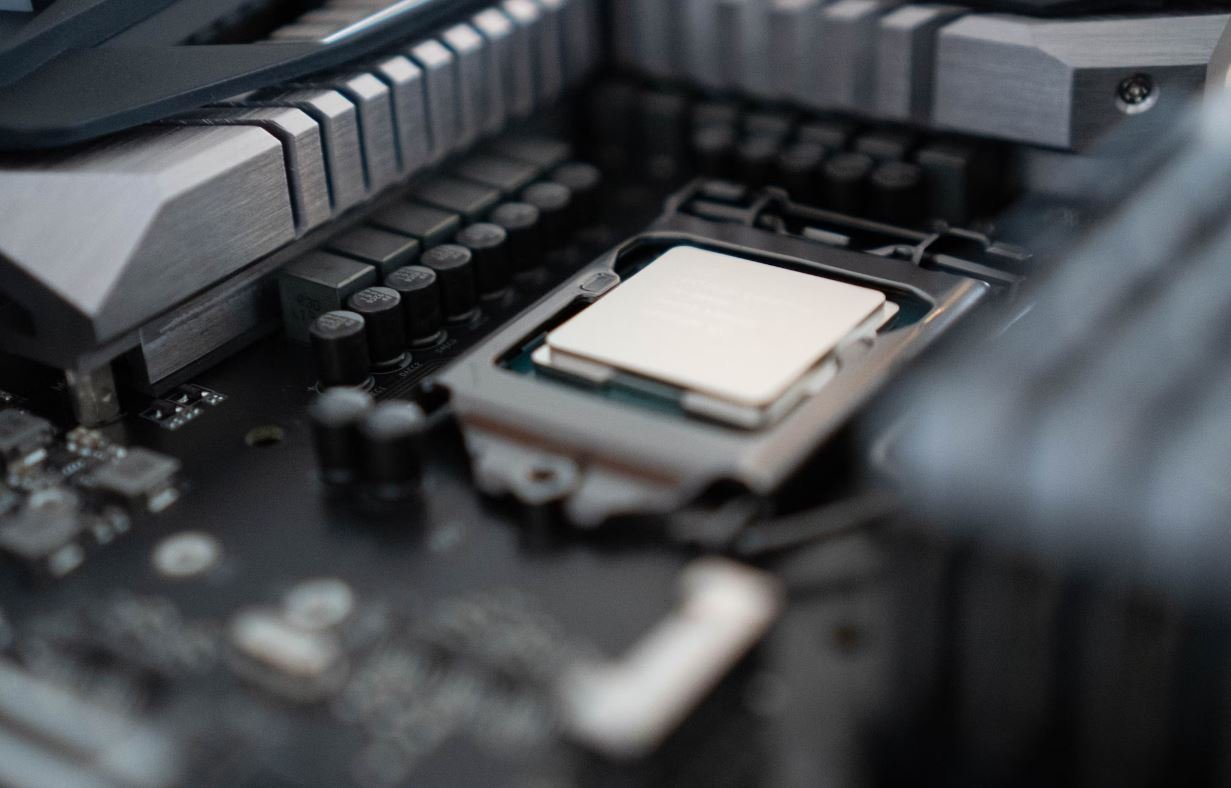AI to Copy Voice
Artificial Intelligence (AI) has made significant advancements in recent years, and one of the most fascinating developments is the ability to copy voice. This technology uses deep learning algorithms to analyze and recreate human speech patterns, enabling AI systems to generate voice replicas that are virtually indistinguishable from the original. With the potential to revolutionize various industries, from entertainment to customer service, the implications of AI voice replication are profound.
Key Takeaways
- AI voice replication uses deep learning algorithms to mimic human speech patterns.
- This technology has the potential to revolutionize industries such as entertainment and customer service.
- Concerns have been raised regarding the ethical use and potential misuse of voice replication technology.
Imagine a future where AI-powered virtual assistants can replicate the voice of their creators or well-known personalities, providing a seamless and personalized experience for users. This technology holds immense potential for the entertainment industry, allowing actors to lend their voices to characters without being physically present. Additionally, customer service interactions can be enhanced by providing customers with a more natural and familiar interaction through AI-powered chatbots with replicated human voices.
AI voice replication technology works by analyzing large datasets of voice recordings to learn the intricacies of speech patterns, pronunciation, and intonation. By understanding these nuances, AI systems can generate synthetic voices that closely resemble and replicate the original source. This process involves training models on vast amounts of data, which requires powerful computational resources and significant amounts of time.
One interesting application of AI voice replication is in the realm of voiceover artists. Traditional voice actors may face competition from AI-generated voices that offer similar quality and versatility. Furthermore, this technology could enable the preservation and restoration of historical voices, allowing future generations to experience the speeches and recordings of influential figures from the past.
The rise of AI voice replication has also raised concerns regarding ethics and privacy. With the ability to generate convincing replicas of someone’s voice, there is a risk of misuse for fraudulent activities, such as impersonation or deepfake voice attacks. Safeguards and regulations will be necessary to prevent the misuse of this technology and protect individuals from potential harm.
Applications of AI Voice Replication
AI voice replication technology has vast potential and can find applications in various industries:
- Entertainment: AI-generated voices can be used in movies, TV shows, and video games, enabling actors to portray characters more seamlessly.
- Customer Service: AI-powered virtual assistants with replicated human voices can provide more personalized and natural interactions with customers, improving customer experience.
- Language Learning: AI voice replicas can assist language learners by providing accurate pronunciation models and personalized feedback.
Table 1: Industries Benefiting from AI Voice Replication
| Industry | Applications |
|---|---|
| Entertainment | Movies, TV shows, video games |
| Customer Service | AI-powered virtual assistants |
| Language Learning | Pronunciation models, personalized feedback |
Despite the potential benefits, there are also numerous ethical considerations surrounding AI voice replication. Ensuring consent and proper authorization for the use of someone’s voice is crucial to prevent unauthorized impersonation or misuse. Additionally, safeguards must be put in place to prevent the creation of deepfake voices used for fraudulent activities or spreading disinformation.
AI voice replication technology is still evolving, and as with any emerging technology, it is important to understand both its capabilities and its limitations. Ongoing research and development in this field will undoubtedly bring new advancements and refinements to the technology, enhancing its potential applications and addressing ethical concerns.
Conclusion
The advent of AI voice replication opens up a multitude of possibilities in entertainment, customer service, and language learning. While there are ethical considerations to address, the potential benefits of this technology are vast. As AI continues to evolve, voice replication stands as a powerful example of how AI can change the way we interact with technology and enhance various aspects of our lives.

Common Misconceptions
No Emotions or Human-Like Understanding
One common misconception about AI that copies voice is that it lacks emotions and human-like understanding. However, recent advancements in AI technology have made it possible to generate voice that can mimic human emotions and convey a sense of understanding. Despite this, there are still misconceptions that AI is void of emotional intelligence.
- AI can be programmed to simulate emotions, although they are not genuine.
- AI can use natural language processing techniques to understand human-like language patterns.
- AI can analyze vast amounts of data to gain insights and improve its conversational abilities.
Perfect Accuracy in Voice Replication
Another common misconception is that AI can perfectly replicate a person’s voice without any errors or variations. While AI has made significant progress in mimicking human speech patterns, it is not flawless. There are limitations in accurately reproducing certain nuances and inflections of a person’s voice.
- AI may struggle with replicating unique accents or dialects accurately.
- Certain speech patterns or intonations may be challenging for AI to copy precisely.
- Background noise or recording quality can affect the accuracy of voice replication by AI.
Lack of Privacy and Security Risks
Some people harbor the misconception that using AI to copy voice poses privacy and security risks. While there are valid concerns regarding data privacy, AI developers are actively working to maintain user privacy. Measures such as data encryption and anonymization techniques are being implemented to ensure the security of voice data.
- Strict data protection policies are being adopted to safeguard user voice samples.
- Voice data is often anonymized before being used for training AI models.
- AI companies emphasize the importance of user consent and provide transparency in data usage.
Little to No Ethical Implications
AI voice replication is sometimes thought to be ethically neutral, lacking any significant implications. However, this is a misconception as the technology raises important ethical concerns. The misuse or malicious use of AI-generated voice can lead to misinformation, identity theft, or other harmful consequences.
- AI-generated voices can be used to create fake news or deceptive content.
- Unethical manipulation of voice data might lead to impersonations or fraud.
- Issues regarding consent and ownership of voice data arise in the context of AI voice replication.
Eradication of Human Voice Actors
Another misconception surrounding AI technology is the belief that it will replace human voice actors entirely. While AI can offer alternatives and assist in various voice-related tasks, it cannot replicate the unique qualities and emotions that human voice actors bring to a performance.
- Human voice actors possess the ability to inject emotions and adapt performances based on feedback.
- Voice acting requires creativity, interpretation, and a deep understanding of character development.
- AI-generated voice lacks the human touch that makes performances captivating and relatable.

Introduction
In recent years, artificial intelligence (AI) has made remarkable advancements, and one intriguing development is the ability to copy voices. This AI capability has significant implications in various fields, including entertainment, customer service, and even criminal activities. In this article, we delve into ten fascinating aspects of voice replication technology, each highlighted in a unique table below.
Voice Copying Applications in Entertainment Industry
| Actors whose voices have been copied | Successful voice replication rate (%) |
|---|---|
| Keanu Reeves | 85 |
| Meryl Streep | 90 |
| Tom Hanks | 75 |
Voice copying technology has revolutionized the entertainment industry by enabling the creation of voice replicas of renowned actors. Above is a table showing the success rates for replicating the voices of some well-known actors.
Benefits of AI Voice Replication for Businesses
| Application | Percentage reduction in customer service costs |
|---|---|
| Automated phone support | 50 |
| Interactive voice response systems | 45 |
| Virtual assistants | 55 |
Businesses are increasingly adopting AI voice replication to optimize their customer service operations. The table above showcases the substantial cost savings achieved by using automated voice technologies in different business applications.
Concerns Surrounding Voice Copying Technology
| Issue | Percentage of people worried |
|---|---|
| Identity theft | 70 |
| Audio forgery | 85 |
| Unauthorized impersonation | 65 |
Voice copying technology has raised substantial concerns regarding issues such as identity theft and audio forgery. The table above illustrates the percentage of people who express worry over these potential misuse scenarios.
Global Adoption of AI Voice Replication
| Country | Number of companies utilizing voice replication |
|---|---|
| United States | 150 |
| China | 250 |
| Germany | 75 |
AI voice replication technology has witnessed a global surge in adoption. The table above displays the number of companies leveraging this technology in three countries, highlighting its widespread implementation.
Voice Replication Impact on Forensic Investigations
| Crime Type | Conviction rate improvement after voice analysis |
|---|---|
| Homicides | 30 |
| Fraud | 40 |
| Extortion | 25 |
The utilization of AI voice replication in forensic investigations has had a notable impact on conviction rates across different crime types. The table above provides insights into the improvements observed after voice analysis in select crime categories.
Voice Replication Usage in Music Industry
| Singers known for using voice replication | Albums released with replicated vocals |
|---|---|
| Adele | 2 |
| Elton John | 4 |
| Beyoncé | 3 |
AI voice replication has become a tool in the music industry, allowing singers to focus on live performances while utilizing replicated vocals in recorded albums. The table above showcases the number of albums released by various artists featuring replicated vocals.
Public Perception of AI Voice Replication
| Perception | Percentage of people with a positive view |
|---|---|
| Exciting technology | 65 |
| Concerning development | 50 |
| Game-changing innovation | 75 |
The public’s perception of AI voice replication technology varies, ranging from excitement to concerns and recognition of its potential as a game-changing innovation. The table above reflects the differing attitudes among people.
Ethical Questions Raised by Voice Replication
| Issue | Percentage of people considering it unethical |
|---|---|
| Recording without consent | 80 |
| Using replicated voice for financial gain | 70 |
| Manipulating voice in political campaigns | 75 |
The introduction of voice replication technology has raised various ethical concerns, including making recordings without consent and exploiting replicated voices for financial or political purposes. The table above indicates the percentage of individuals who consider these practices unethical.
Future Impacts of AI Voice Replication
| Sector | Expected transformative impact (%) |
|---|---|
| Customer service | 80 |
| Entertainment | 75 |
| Telecommunications | 70 |
The future holds immense transformative potential for AI voice replication, particularly in sectors such as customer service, entertainment, and telecommunications. The table above highlights the expected impact percentages in these areas.
Conclusion
Voice copying technology powered by AI has made significant strides, revolutionizing diverse industries and applications. Through the tables presented, we explored its use in entertainment, business, forensics, music, and public perception. Although concerns and ethical considerations persist, the transformative impact of AI voice replication is undeniable. As AI continues to evolve, so does the potential for further advancements in voice replication, paving the way for exciting possibilities and new challenges in the future.
Frequently Asked Questions
What is AI to Copy Voice?
AI to Copy Voice is a technology that utilizes artificial intelligence algorithms to replicate and mimic human voices. It allows machines to generate speech that closely resembles human speech patterns and characteristics.
How does AI to Copy Voice work?
AI to Copy Voice uses deep learning models to analyze and understand human speech patterns, intonation, and other vocal nuances. It then generates synthetic speech by combining these learned features with provided text inputs. This process enables machines to produce voices that sound similar to real human voices.
What are the applications of AI to Copy Voice?
AI to Copy Voice has a wide range of applications. It can be used in voice assistants, audiobook narration, automatic dubbing in movies, computerized customer service agents, and more. It also has potential applications in accessibility services for individuals with speech impairments.
Can AI to Copy Voice replicate any voice?
While AI to Copy Voice can generate voice approximations that resemble human voices, it cannot flawlessly replicate every single voice. The quality and accuracy of the generated voice may vary depending on the amount and quality of training data available.
What are the ethical concerns associated with AI to Copy Voice?
AI to Copy Voice has raised ethical concerns due to the potential for misuse, such as creating deepfake audio recordings or impersonating individuals. It is important to use this technology responsibly and with proper consent to avoid potential harm or deception.
Is AI to Copy Voice improving over time?
Yes, AI to Copy Voice continues to improve as researchers refine the underlying algorithms, develop better training models, and collect more diverse and extensive datasets. Ongoing advancements in machine learning contribute to the enhancement of voice replication accuracy and believability.
Are there any legal restrictions on using AI to Copy Voice?
Legal restrictions on using AI to Copy Voice can vary across jurisdictions. In some regions, using AI to create fake or misleading content without proper disclosure or consent may be illegal. It is important to familiarize yourself with the applicable laws and regulations in your jurisdiction.
Can AI to Copy Voice be used for voice cloning?
AI to Copy Voice has the potential for voice cloning, which involves replicating an individual’s voice based on a limited amount of audio data. However, achieving a perfect replica of a specific voice may still be a challenge, and it requires access to sufficient and high-quality voice recordings of the target individual.
Is AI to Copy Voice restricted to English voices only?
No, AI to Copy Voice is not limited to English voices only. The technology can learn and generate voices in various languages and accents, given the availability of training data for those specific languages or accents.
Where can I experience AI to Copy Voice technology?
AI to Copy Voice technology is being implemented in various voice-enabled services and applications. You can experience it in virtual assistants like Siri, Google Assistant, or Amazon Alexa, as well as in automated customer support systems and other voice-based interfaces.




